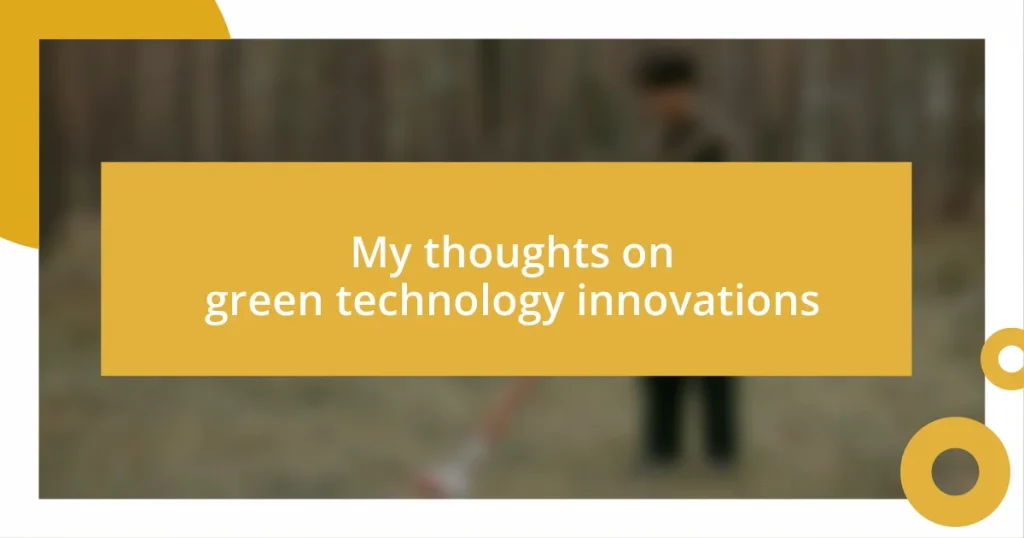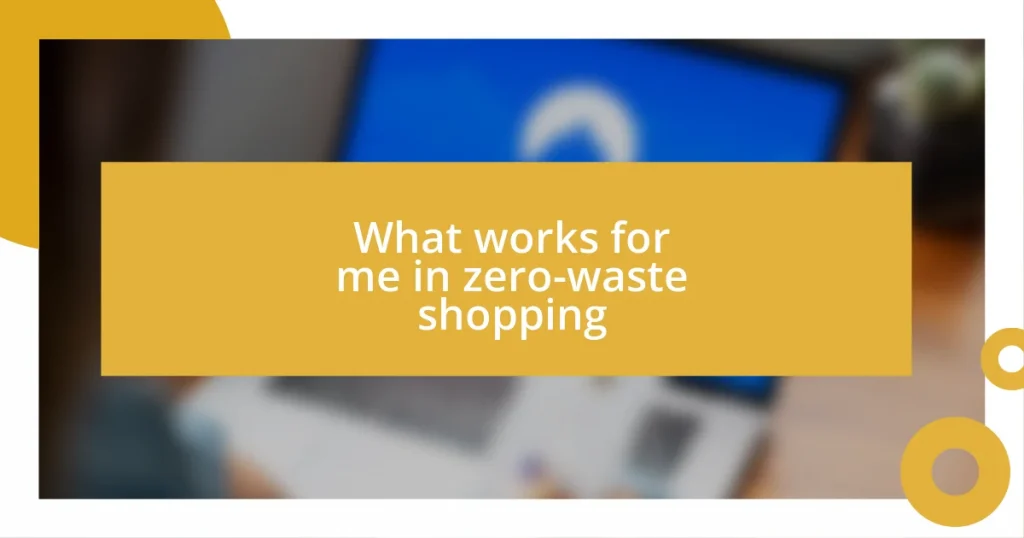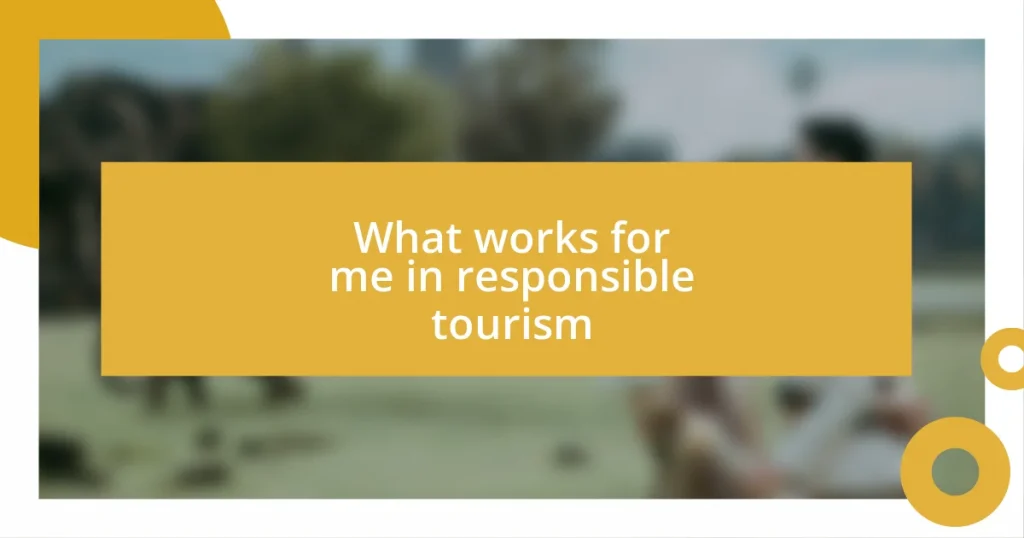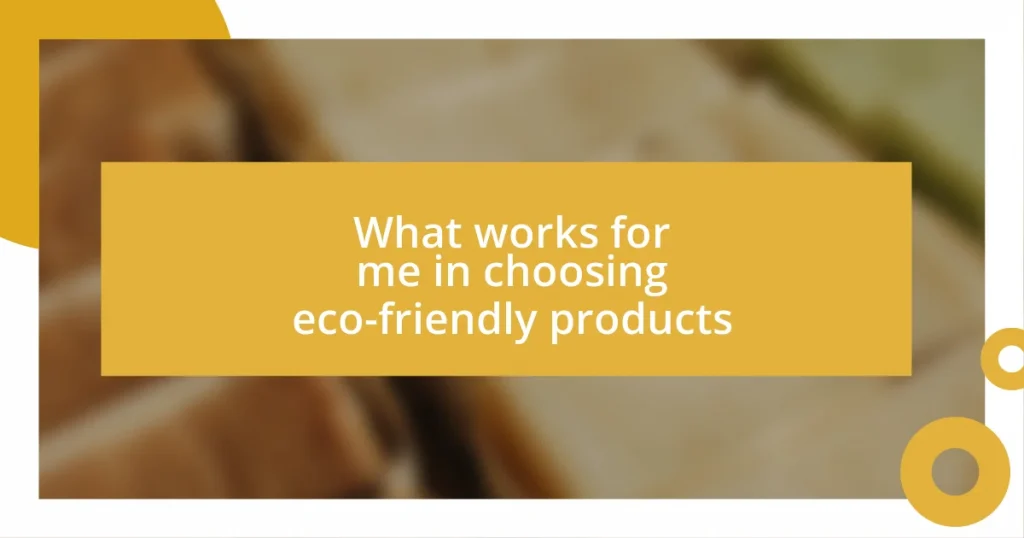Key takeaways:
- Green technology innovations, such as solar panels and electric vehicles, demonstrate the transformative potential of sustainable practices and create a mindset shift towards environmental responsibility.
- Adopting sustainable practices, like composting and energy-efficient renovations, not only benefits the environment but also fosters community spirit and offers economic advantages.
- Future trends in green technology include decentralized energy systems, AI integration for optimized consumption, and the use of sustainable materials, promising greater resilience and sustainability for communities.
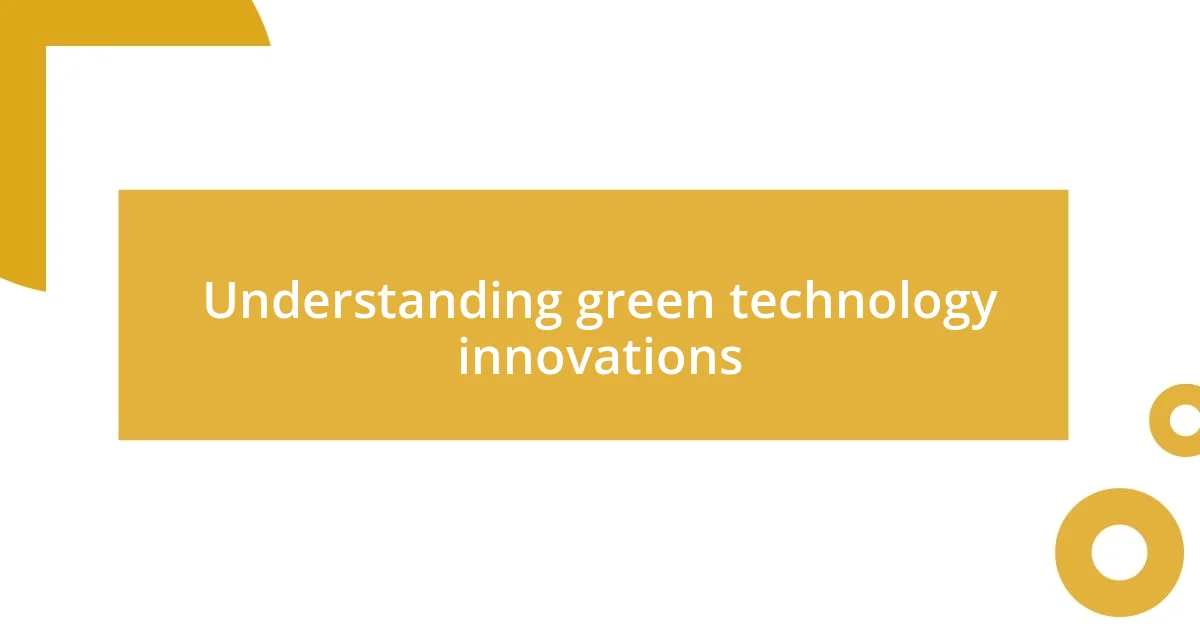
Understanding green technology innovations
Green technology innovations are reshaping how we think about our relationship with the environment. I remember my first encounter with solar panels during a visit to a friend’s house; it struck me how they harness the sun’s energy to power their home. Isn’t it fascinating how something as simple as sunlight can be transformed into a powerful energy source?
These innovations aren’t just about equipment; they represent a shift in mindset towards sustainability. I often ask myself, “What if every household adopted even one green technology?” The collective impact could be monumental, leading us to a more sustainable world where nature and human advancement coexist harmoniously.
When I look at the advancements in electric vehicles, I’m amazed by how far we’ve come. Just a few years ago, the idea of driving an eco-friendly car seemed futuristic. Now, it’s a reality that many of us embrace, proving that innovation can genuinely change our daily lives for the better. Isn’t it encouraging to think about what’s next?
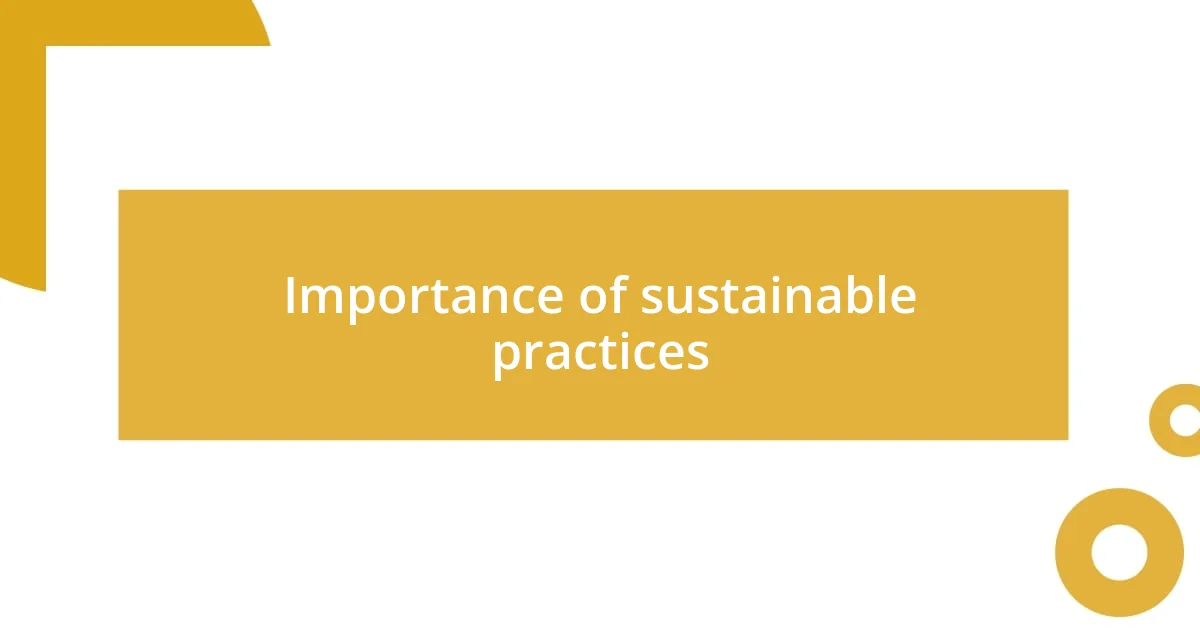
Importance of sustainable practices
Sustainable practices are crucial for preserving our planet for future generations. When I first learned about composting, I was surprised at how something as simple as kitchen scraps could enrich the soil instead of ending up in a landfill. It’s like turning waste into a resource, which not only benefits the environment but also allows us to nurture our own gardens and communities.
Adopting sustainable practices can have significant economic benefits, too. I remember attending a local workshop on energy-efficient home renovations. Hearing homeowners share their stories of reduced utility bills felt empowering. This shift doesn’t just help the environment; it makes financial sense, creating a win-win situation that encourages more people to get involved.
Moreover, embracing sustainability fosters a sense of community. I vividly recall a neighborhood clean-up event where everyone came together to beautify our shared spaces. This collective action ignited a passion for ongoing environmental initiatives in our area. When we prioritize sustainable practices, we don’t just protect our ecosystems; we also reinforce a community spirit that can lead to lasting change.
| Sustainable Practices | Benefits |
|---|---|
| Composting | Reduces waste and enriches soil |
| Energy-efficient renovations | Reduces utility costs |
| Community clean-up events | Strengthens community bonds |
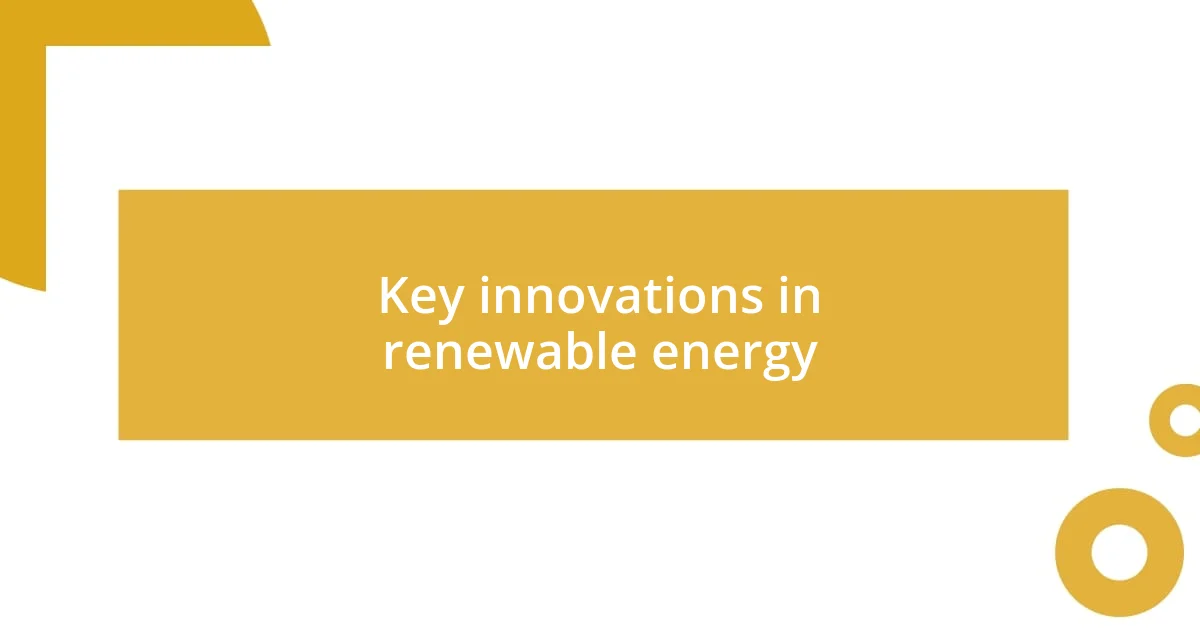
Key innovations in renewable energy
Renewable energy innovations are making waves, and I find it thrilling to see how technology is helping us harness natural resources more efficiently. For instance, I recently read about advancements in offshore wind farms. They can now capture winds at higher altitudes, significantly boosting their energy output and reducing costs. Watching how these giant turbines transform ocean breezes into electricity really drives home the impact of innovation in renewable energy.
Here are some key innovations in renewable energy that I’m particularly excited about:
- Solar PV Technologies: New solar panel designs are more efficient and adaptable, allowing for installation in various settings, from rooftops to integrated solar windows.
- Energy Storage Solutions: Innovations in battery technology are enabling better energy storage, allowing us to retain excess energy generated during peak production times for later use.
- Bioenergy Advances: Innovative methods of converting waste into biofuels are gaining traction, helping us reduce landfill use and produce cleaner energy.
- Smart Grid Technologies: These systems optimize energy distribution and consumption, making it easier for us to integrate renewable sources into our daily lives.
Reflecting on these innovations, I can’t help but remember the excitement I felt when I first encountered a community solar project. It was inspiring to see neighbors coming together, pooling resources to set up shared solar panels. This communal approach not only provided clean energy but also fostered a strong sense of collaboration and purpose among participants. It’s moments like these that remind me of the transformative power of renewable energy—and how it’s reshaping not just our grids but also our communities.
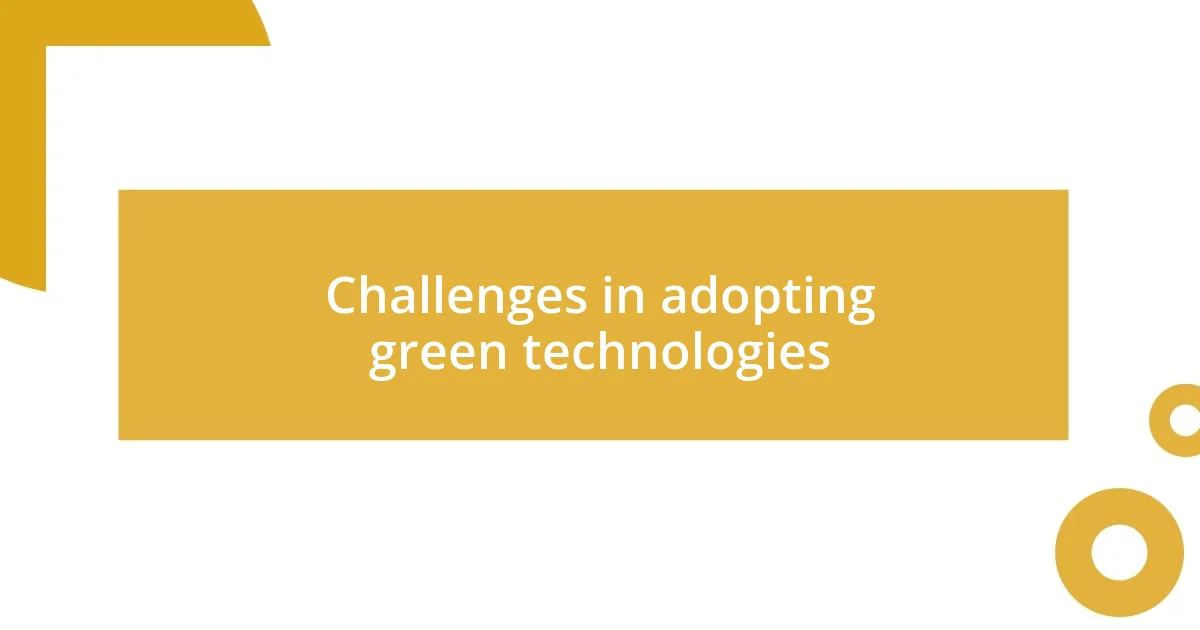
Challenges in adopting green technologies
Adopting green technologies often runs into the wall of upfront costs. I recall a friend who wanted to install solar panels on her roof but hesitated due to the initial investment required. This made me wonder: how many other potential green adopters are out there, held back by financial barriers that seem daunting? Tackling these costs through government incentives or community funding could make a significant difference in wider adoption.
Another challenge lies in the entrenched habits of individuals and industries. I once attended a seminar where an expert discussed resistance to change as a hurdle to green technology adoption. It struck me how deeply rooted some practices are, as we tend to stick to what feels familiar, even when it’s not sustainable. Encouraging people to embrace new technologies involves not only education but also creating compelling narratives that highlight the personal benefits of transitioning to greener solutions.
Lastly, the evolving nature of technology itself poses a challenge. I remember hearing about a family that invested in an electric vehicle, only to see the manufacturers release a newer model within months that included further advancements. This constant race for improvement can make individuals hesitant to adopt new technologies out of fear that their investment may soon become obsolete. Addressing these concerns about longevity and future-proofing will be essential in alleviating adoption hesitancy and fostering sustainable practices.
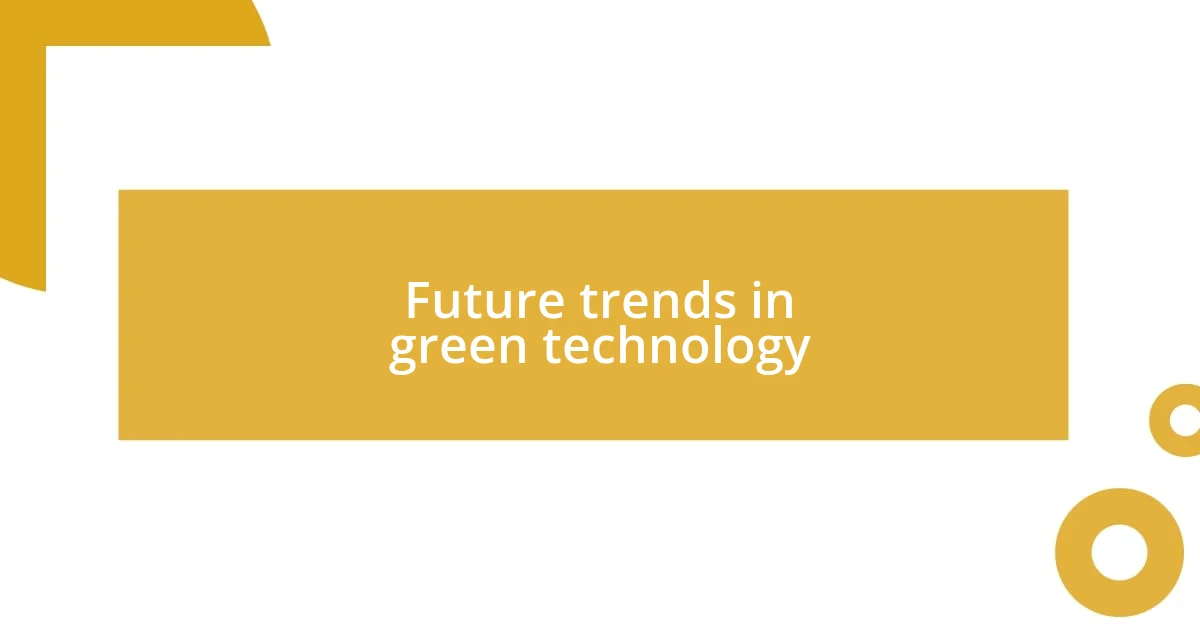
Future trends in green technology
The horizon of green technology is indeed bright and full of promise. I have noticed an increasing trend toward decentralized energy systems, where communities generate and manage their own power. I recall visiting a small town that had established a microgrid. Watching their residents take charge of their energy needs was empowering, inspiring me to think about how this model could be replicated elsewhere. Isn’t it fascinating to consider how localized solutions can lead to greater energy independence and resilience?
Looking ahead, I believe we’ll see a surge in artificial intelligence (AI) fused with green technologies. Just imagine smart algorithms optimizing energy consumption in real time! Recently, I came across a project where AI was used to predict energy usage patterns in a business. It streamlined their operations and cut costs significantly. Can you envision how AI could revolutionize everything from traffic management to home energy use to enhance sustainability? It’s thrilling to think about the potential benefits.
Another trend gaining traction is the development of sustainable materials. For instance, I recently read about biodegradable alternatives to conventional plastics. The emotional weight behind reducing plastic waste resonates deeply with me, as I often think about the impact we leave for future generations. When I shared this information with friends, they were shocked yet excited to explore options like shopping with reusable bags and choosing products made from sustainable materials. This shift encourages me to believe that each small action adds up to significant change, contributing to a future that respects our planet.
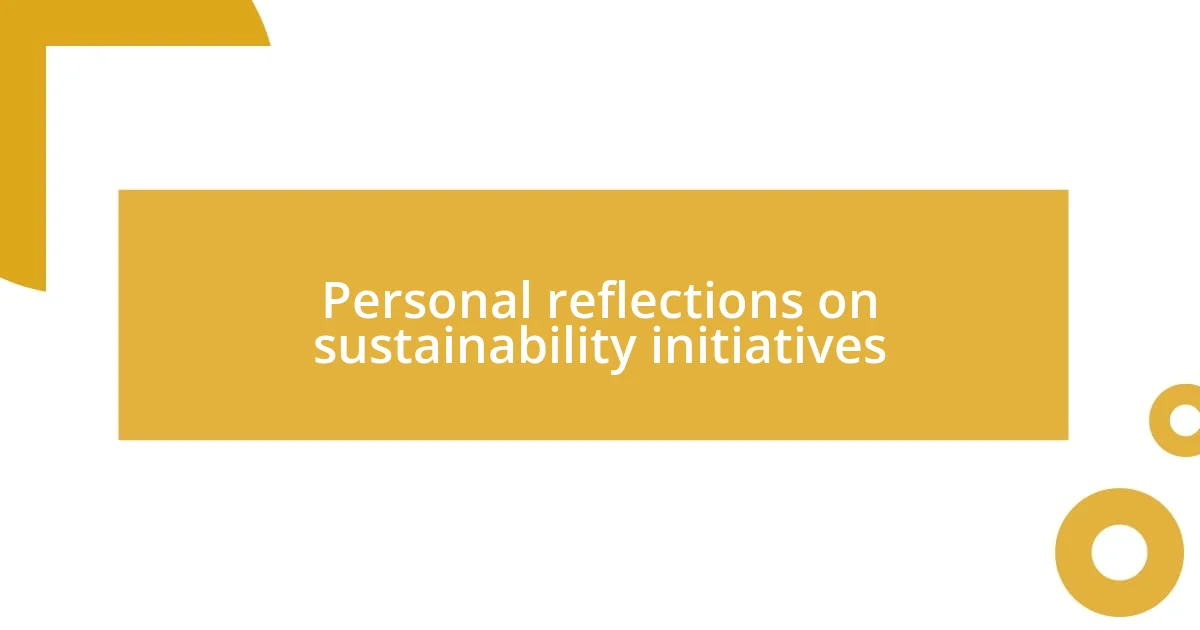
Personal reflections on sustainability initiatives
Reflecting on sustainability initiatives, I can’t help but think back to an eco-friendly community event I attended last summer. I was genuinely moved by the enthusiasm of volunteers who shared their experiences of transitioning to sustainable living. Their stories weren’t just informative; they highlighted the joy that comes from small yet impactful changes, like starting a community garden or organizing neighborhood clean-up days. Doesn’t it make you wonder what kind of ripple effects these initiatives could create in our own lives?
In my experience, the emotional connection often plays a crucial role in promoting sustainability initiatives. I remember the moment I learned about the effects of climate change on vulnerable communities during a workshop. That knowledge sparked a fire within me, pushing me to advocate for local sustainability projects. It’s a reminder that understanding the real-world impact of our actions can inspire others to join in. How can we turn that knowledge into collective action for the benefit of everyone?
Another aspect that has been particularly striking to me is the role of storytelling in championing sustainability. I recall reading about a town that embraced renewable energy by showcasing the stories of families who made the switch and saw tangible benefits. Their narratives resonated deeply with residents and encouraged many to take the plunge, including myself. Could it be that storytelling is the secret ingredient to fostering a culture of sustainability? When we share our personal journeys, we create a community anchored in shared values and experiences.










